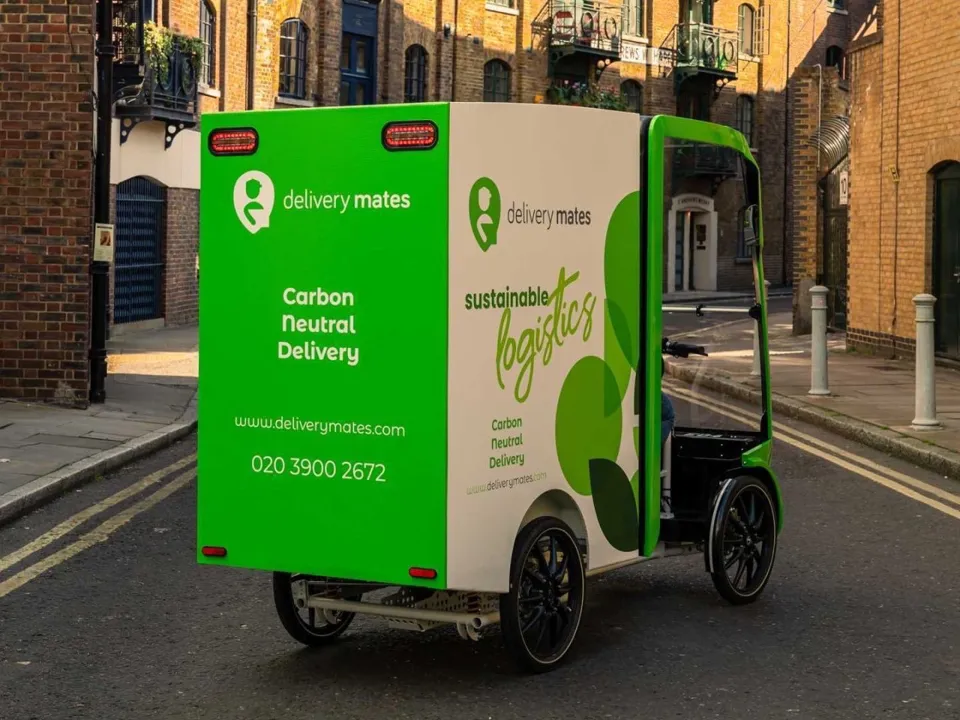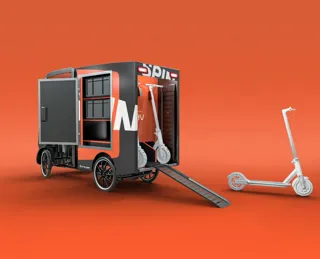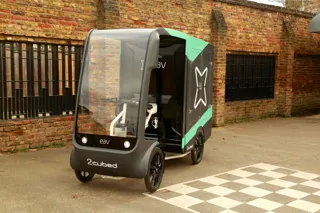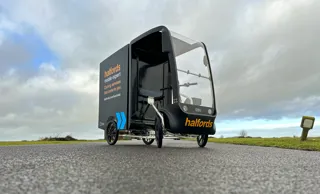EAV2Cubed eCargo bikes are being deployed by logistics provider Delivery Mates at a new micro hub facility launched by Westminster City Council.
The project is part of the Defra-funded Clean Air Logistics for London programme.
The project aims to move more freight into London via river rather than road supported by zero emission eCargo bike delivery methods and using micro logistics hubs in Central London.
“We are hugely proud to be working on this exciting project,” said Kevin Savage, chief operating officer at Delivery Mates.
“Opening a Micro Logistics Hub in Pimlico will further strengthen Delivery Mates’ capability to deliver sustainable logistics to customers, residents and local retailers.
“We look forward to playing a part in reducing congestion, removing emissions and creating a safer delivery environment for all stakeholders within Westminster.”
Based in the Q-Park Pimlico parking facility, the hub will receive parcels from an electric delivery vehicle and then distribute them by EAV eCargo bikes in Westminster and the surrounding area.
Loading and unloading will take place within the car park, respectful of local residents and to keep noise levels at a minimum.
Delivery Mates already operate five existing hubs in London and have shared important data and insights, such as projected CO2 emissions savings and the number of parcel collections and deliveries expected so the trial can be fully monitored.
“Again, EAV is at the cutting edge of providing and proving new, innovative solutions for city-based logistics.” said Adam Barmby, founder and CEO of EAV.
“This trial microhub project allows EAV to work with both Westminster and Delivery Mates, both of whom are setting the international standards in urban lightweight commercial vehicle utilisation.
“It’s going to be exciting to see how the trial performs - although we’re confident that EAV bikes will achieve all the set objectives being more efficient and safer than vans, reducing congestion and being emissions free.”
Researchers at the University of Westminster used GPS data to compare routes taken by cargo bikes in London with routes that vans would have to take to deliver the same parcels.
Results showed that services provided by cargo bikes in London are 1.61 times faster than that performed by van, which in a year saves over 14,500kg of CO₂ and over 20kg of NOx (nitrogen oxides).
























Login to comment
Comments
No comments have been made yet.